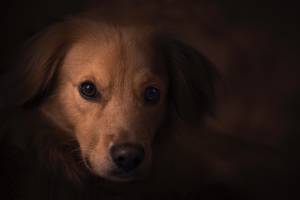
Before diving into the reasons behind your dog’s potent flatulence, it’s essential to recognize that gas is a completely natural part of a dog’s digestive process. Just like humans, dogs produce gas when they digest food. However, when the smell becomes particularly foul, it can be indicative of underlying health issues or dietary concerns.
One of the primary reasons for a dog’s foul-smelling gas is their diet. Dogs are known for their indiscriminate eating habits, and this can lead to digestive issues and gas. Feeding your furry companion low-quality food or an unbalanced diet can result in excessive gas production and smelly flatulence. Certain ingredients in commercial dog foods, such as soy, dairy, and high-fat content, can also contribute to increased gas production and unpleasant odors.
Another common cause of smelly dog farts is food intolerance or sensitivity. Just like humans, dogs can also have intolerances to certain ingredients in their diet. If your dog is sensitive to a specific type of food, it can lead to gastrointestinal discomfort and excessive gas. Common culprits include wheat, corn, and certain proteins like beef or chicken. Identifying and eliminating these trigger foods from your dog’s diet can significantly reduce the intensity of their flatulence.
Furthermore, underlying health issues can also be a contributing factor to your dog’s smelly gas. Conditions such as gastrointestinal infections, inflammatory bowel disease, or intestinal parasites can all lead to increased flatulence and unpleasant odors. If you notice a sudden change in the frequency or smell of your dog’s gas, it’s crucial to consult with a veterinarian to rule out any potential health concerns.
On a more lighthearted note, certain dog breeds are notorious for their gas-related antics. Breeds with brachycephalic skulls, such as Bulldogs and Pugs, are more prone to swallowing air while eating or drinking, leading to increased gas production. Additionally, larger breeds and those with deep chests, like Great Danes and Boxers, can also experience heightened flatulence due to their unique anatomical features.
In conclusion, while the topic of smelly dog farts may not be the most glamorous, it’s essential to pay attention to your dog’s digestive health. By understanding the potential causes of foul-smelling gas, such as diet, food intolerance, and underlying health issues, you can take proactive steps to address the issue and ensure your furry friend’s well-being. Remember, if you have concerns about your dog’s gas, consulting with a veterinarian is always the best course of action. After all, a happy dog with less smelly gas makes for a happier home for everyone.






